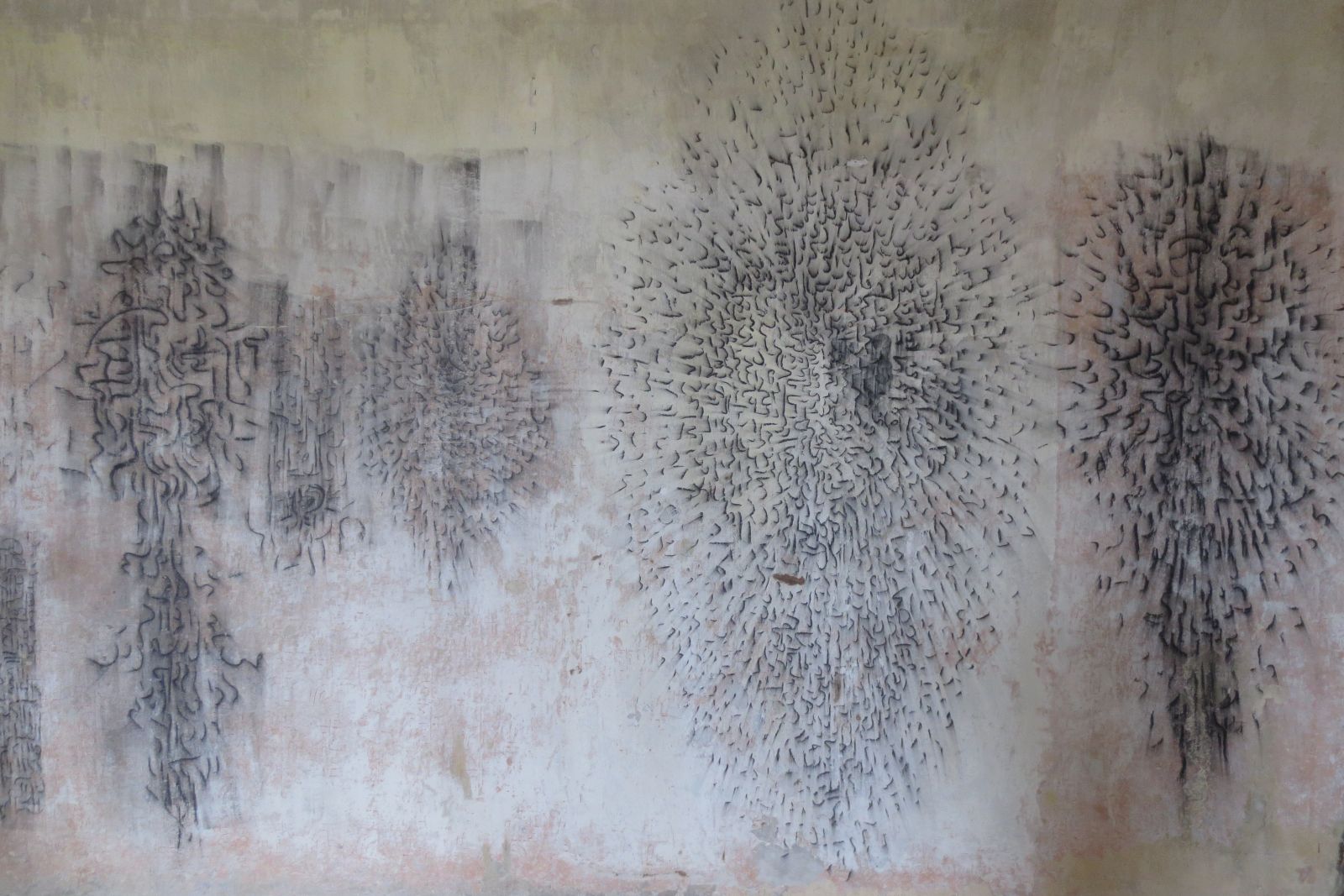After many hours and a few more due to setbacks (scratches, aaaargh) I finally got to the point where the blade was polished with the 7.000 grit paper. This is very fine mirror polish, but it looks a bit, well, strange, unnatural and artificial. There are different options for how to deal with this and I decided to go for buffing.
 Buffing is an abrasive process that uses some very fine polishing compounds on some soft carrier (cloth, felt, paper, leather – all are usable and all have their advantages and disadvantages). In this case I have first used very fine commercial polishing compound applied to a felt wheel. Since I do not have space for a set of specialized buffers in my workshop, I have to do with a drill held firmly in a vice.
Buffing is an abrasive process that uses some very fine polishing compounds on some soft carrier (cloth, felt, paper, leather – all are usable and all have their advantages and disadvantages). In this case I have first used very fine commercial polishing compound applied to a felt wheel. Since I do not have space for a set of specialized buffers in my workshop, I have to do with a drill held firmly in a vice.
Buffing a blade on a wheel can be dangerous process, I think more dangerous than grinding. The main thing to keep in mind in this regard is that the cutting edge orientation must be opposite to how it is held during sharpening – that is, the edge should point in the direction of the movement, not against it. Forgetting this is very, very dangerous, since the blade can bite in the soft wheel in an instant and be hurled in random direction with great force. A care has also to be taken near any and all edges.
 Buffing with the commercial compound has produced very fine finish very quickly, but I was still not satisfied with it. It looked too artificial, machine-made. Luckily enough there is an even finer abrasive at hand – jeweler’s rouge. Nowadays I could buy half a kilo of ferrous oxide for mere 2,-€ (with 4,-€ shipment, ha!), but since I have no shortage of steel dust and rusting iron, I am making my own with a process that I devised when buying stuff online was not yet a thing. Not to save money (it is actually the exact opposite), but for fun. I have used all I had yonks ago, but I have just finished making a small batch from the steel dust ground from my previous dagger and it came handy this time.
Buffing with the commercial compound has produced very fine finish very quickly, but I was still not satisfied with it. It looked too artificial, machine-made. Luckily enough there is an even finer abrasive at hand – jeweler’s rouge. Nowadays I could buy half a kilo of ferrous oxide for mere 2,-€ (with 4,-€ shipment, ha!), but since I have no shortage of steel dust and rusting iron, I am making my own with a process that I devised when buying stuff online was not yet a thing. Not to save money (it is actually the exact opposite), but for fun. I have used all I had yonks ago, but I have just finished making a small batch from the steel dust ground from my previous dagger and it came handy this time.
I do not have a separate buffing wheel for jewelers rouge yet. So I lightly dusted a piece of cloth from an old t-shirt soaked in WD-40. Emphasis on the word “lightly”. Jewelers rouge is very mild abrasive and if it is clean enough, it will not scratch the blade too badly even if not too precisely ground and sieved. But it is good to use the cloth as a sort of final sieve and work the abrasive slowly through the cloth to the blade, and not apply it directly on it.
Theoretically this buffing can be done at home while watching a movie, because it takes a looong time and is boring as hell, but if you do that, you have to be careful. Do not be tempted to scratch your nose or touch anything, that stuff is vicious. It is not dangerous, but the very fine red dust is very strong and vivid pigment and unless you are extremely careful, it gets everywhere and you will have pink fingerprints on everything you touch. Pink switches, pink door handles and definitively pink soap bar. Oh, and if you forget to wear respirator whilst grinding the stuff and sifting, pink bogeys.
I have spent approximately two hours running the oil soaked red rug along the blade and the blade is finally and definitively done to my satisfaction. Next step is to find materials for the guard, bolster and rondel. And a fitting piece of wood for the handle.


















